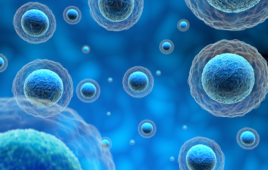
[Eliana/CAR T-cell therapy]
Examining CAR T-cell therapy persistence in the CARPALL trial
Investigating patients from the phase 1 CARPALL trial, the study considered patients who underwent CAR T-cell therapy (AUTO1) to treat B-cell acute lymphoblastic leukemia (B-ALL), a rare and aggressive pediatric blood cancer. Focusing on an advanced therapy investigational medicinal product (ATIMP) designed to combat CD19+ or CD22+ acute lymphoblastic leukemia (ALL) in children and young adults, CARPALL makes use of a novel type of CAR T-cell therapy, where a patient’s T-cells are collected and genetically modified to specifically target and attack cancer cells in the blood.
In the Nature Medicine study, researchers analyzed CAR-T cell data from 10 pediatric leukemia patients over five years post-infusion. The goal was to understand why some CAR T-cells remain in the body long-term, which is an important in ensuring the cancer stays in remission.
Using single-cell sequencing, the scientists found long-lived CAR-T cells had a unique double-negative state and transcriptional signature. The signature was present across all patients with sustained treatment responses. The researchers also detected the signature in two adults with decade-long remissions from another CAR-T therapy.
That finding could mean that the signature is universal for effective, persistent CAR-T cells. Ultimately, the research could point to a common transcriptional blueprint that could yield clinically effective CAR-T cell persistence.
“Through cutting-edge single cell genomics, we have, for the first time, been able to crack the code of persistence in CAR T-cells in children with great clarity,” said Dr. Nathaniel Anderson, lead author and Marie Sklodowska-Curie fellow at the Wellcome Sanger Institute, in a news release.
Chromium supported single-cell analysis in the research
In their research, the scientists used Chromium, a line of instruments from 10x Genomics that enable single cell analysis. The Chromium platform allows researchers to partition and barcode hundreds, even millions, of cells.
“This study illustrates the power of single-cell genomics to uncover the differences between short-lived and persistent CAR T-cells,” said Abbey Cutchin, associate director of market development at 10x Genomics. “Our Chromium platform enabled the researchers to analyze hundreds of thousands of cells from pediatric leukemia patients and identify a unique signature of long-lived CAR T-cells.”
Decoding cellular persistence with Chromium’s genomic capabilities
In particular, the researchers used Chromium’s single-cell genomics capabilities to explore the differences between short-lived and persistent CAR T-cells. The technology sheds light on “areas like cell diversity, uncover novel cell types and understand the cellular drivers of disease,” Cutchin said. “We now have the capability to measure multiple features from a single cell — everything from gene expression to cell surface protein expression, and T and B cell receptor sequences.”
Unraveling the genetic “signature” of CAR T-cell therapy persistence
In the Nature Medicine study, the core finding was the discovery of a unique genetic “signature” of CAR T-cells that persist after infusion. These cells appear to transform into a distinct state that enables them to continuously monitor for cancer cells. The scientists also spotted this signature in adults treated with a different CAR T-cell product for chronic lymphocytic leukemia.
The study also uncovered key genes enabling CAR T-cell persistence, serving as a starting point to identify biomarkers of longevity. Armed with this knowledge, clinical teams could better predict patient responses, while manufacturers could optimize methods to boost persistence in their products.
“This study is a fantastic step forward in our understanding of CAR T-cell persistence and illustrates the power of collaborative science and combining pioneering clinical research with cutting-edge genomic science,” said Dr. Sam Behjati, co-senior author, group lead and senior research fellow at the Wellcome Sanger Institute, in a statement.
Filed Under: Cell & gene therapy, Genomics/Proteomics, Oncology, Pediatrics



